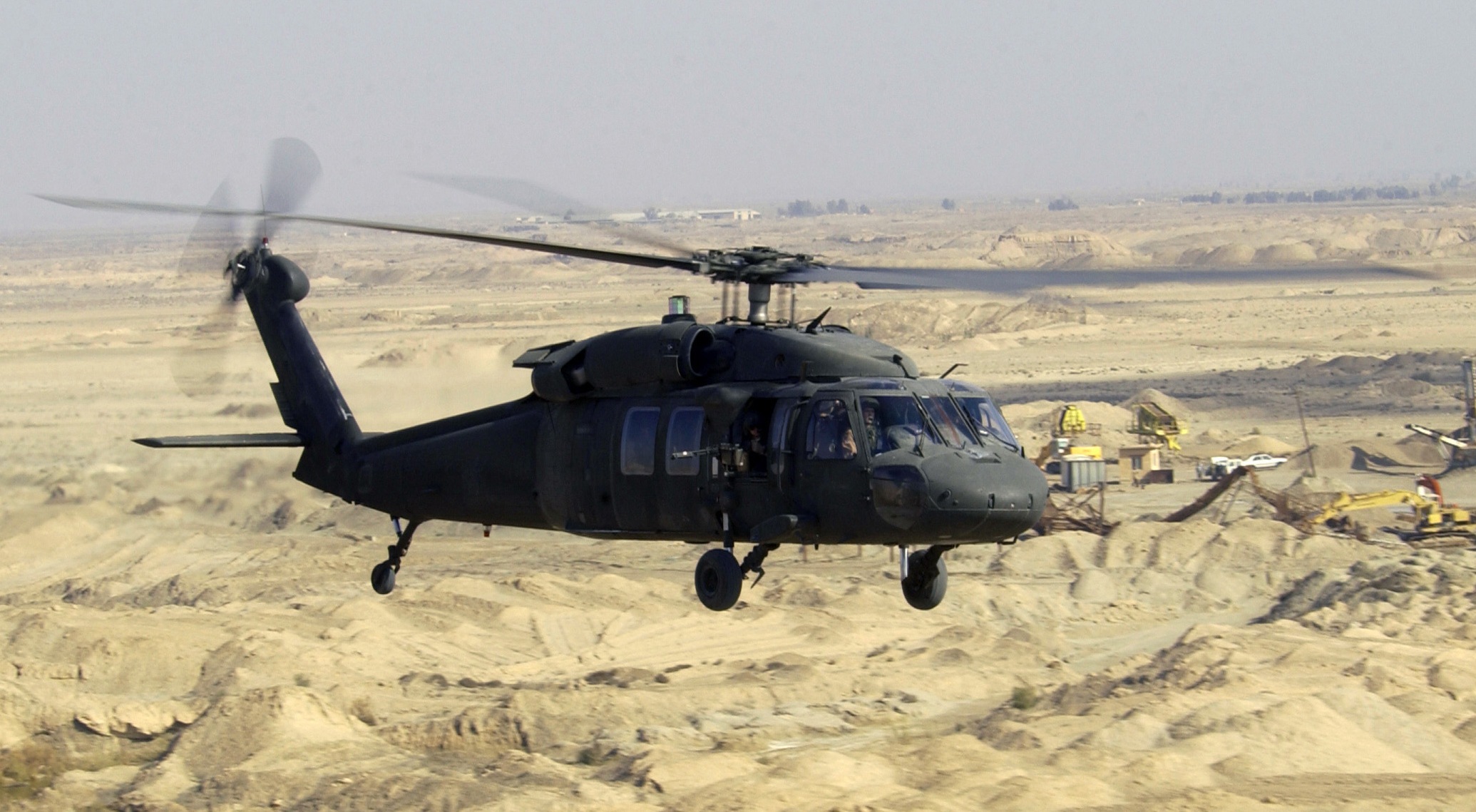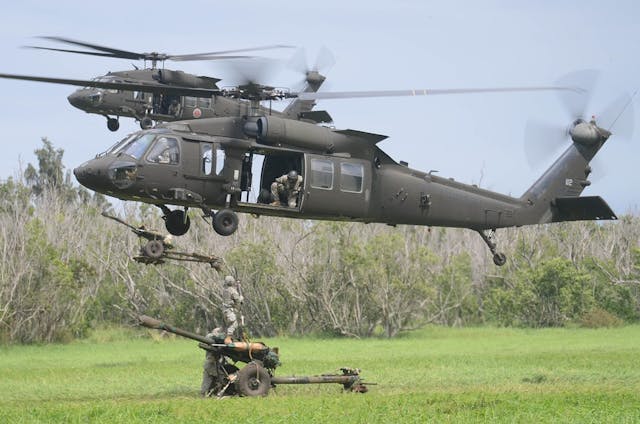UH 60 Black Hawk: From Concept to Modern Applications
The Impact of Lasting Practices on the Future of Airplane Procedures and Emissions Reduction
As the aeronautics sector encounters increasing examination over its environmental impact, the fostering of sustainable methods emerges as a crucial pathway towards future airplane operations and emissions reduction. Developments in sustainable air travel fuels and developments in crossbreed propulsion innovations stand at the center of this change, appealing considerable decreases in greenhouse gas discharges.

Overview of Sustainable Practices
Sustainable techniques in airplane procedures include a variety of methods focused on decreasing ecological effect while maintaining functional efficiency. These techniques are important in the air travel market's dedication to decreasing its carbon impact and adhering to global environmental criteria. Secret initiatives consist of maximizing flight courses to reduce gas usage, improving maintenance procedures to guarantee aircraft operate at peak performance, and applying advanced modern technologies such as winglets and light-weight products that boost aerodynamics.

Training and involving staff on sustainability techniques also play a crucial role, fostering a culture of environmental responsibility within organizations. Overall, the integration of these sustainable methods not just helps minimize discharges but also improves the lasting feasibility of the aeronautics sector, ensuring it satisfies the needs of both customers and regulative bodies while contributing to global sustainability goals.
Innovative Fuel Alternatives
Countless innovative gas options are emerging as pivotal remedies to lower the aviation industry's reliance on standard fossil fuels. Among these alternatives, Lasting Aeronautics Fuels (SAFs) have gotten considerable attention because of their prospective to lower lifecycle greenhouse gas discharges by approximately 80% compared to conventional jet gas. SAFs are originated from different feedstocks, consisting of waste oils, agricultural deposits, and also algae, making them a versatile choice for the market.
An additional encouraging choice is hydrogen fuel, which, when utilized in gas cells, produces only water vapor as a by-product. This zero-emission possible presents a significant opportunity for decarbonizing trip procedures, particularly for short-haul flights and local airplane. Furthermore, electric propulsion systems are being checked out, leveraging battery innovation to power aircraft. While present battery capacity limitations array and haul, ongoing advancements may quickly make electric trips feasible for certain applications - uh 60.
Finally, biofuels originated from biomass are being investigated, providing an eco-friendly option that can be mixed with standard gas. Collectively, these ingenious fuel choices represent an important action toward achieving a sustainable aeronautics ecosystem, lining up with global discharges decrease targets and enhancing the industry's ecological stewardship.
Technological Innovations in Aviation

Exactly how can technical advancements improve the future of air travel? The integration of advanced innovations is crucial in transforming aircraft procedures, enhancing efficiency, and reducing discharges. Advancements such as electric and hybrid propulsion systems go to the center, promising considerable reductions in gas intake and greenhouse gas emissions. These systems utilize improvements in battery technology and power administration, enabling aircraft to run with a reduced ecological footprint.
In addition, the implementation of advanced products, such as lightweight composites, adds to boosted aerodynamics and gas effectiveness. Using artificial knowledge and artificial intelligence in flight procedures enhances course preparation and decreases fuel shed by allowing real-time modifications based upon climate and traffic conditions. In addition, the advancement of autonomous and remotely piloted airplane systems stands to revolutionize cargo and guest transport, potentially boosting performance while decreasing human error.
Additionally, sustainable aeronautics modern technologies, consisting of advanced air web traffic management systems, can minimize and improve operations blockage, bring about reduced discharges throughout flight. These developments jointly represent a standard shift in aeronautics, promising a future where sustainability and functional performance are linked, therefore sustaining the market's commitment to lowering its environmental effect.

Regulative Framework and Compliance
In light of the growing emphasis on ecological stewardship within the air travel market, the governing framework controling aircraft procedures is developing to advertise sustainable practices. Governing bodies, such as the International Civil Aviation Company (ICAO) and different nationwide aviation authorities, are presenting strict standards focused on lowering discharges and enhancing functional efficiency.
These laws typically consist of the fostering of Lasting Aviation Gas (SAF), which has been recognized as a vital part in achieving lower carbon impacts. In addition, conformity with these guidelines calls for hop over to these guys airline companies to apply operational techniques and innovative modern technologies, such as enhanced trip paths and improved air web traffic monitoring, to minimize gas consumption.
Furthermore, the enforcement of exhausts trading schemes and carbon balancing out campaigns is coming to be increasingly common, engaging airlines to monitor and report their emissions precisely. Non-compliance can result in substantial charges, therefore pushing operators to focus on sustainability in their company models.
Eventually, the progressing governing landscape not only drives technology and financial investment in eco-friendly modern technologies but likewise fosters a culture of liability within the air travel market. As these frameworks remain to create, the concentrate on lasting techniques will certainly be indispensable to accomplishing the industry's lasting environmental objectives.
Future Fads in Aircraft Operations
As the aviation market adapts to our website an increasingly strict governing atmosphere, future patterns in airplane operations are readied to concentrate on ingenious services that better enhance sustainability and efficiency - uh 60. Secret growths will likely include the fostering of innovative air web traffic management systems, which make use of real-time information and expert system to enhance flight paths, decreasing fuel consumption and discharges
An additional considerable fad is the enhanced integration of sustainable aeronautics gas (SAFs) These choices to traditional jet fuel, originated from renewable sources, can considerably decrease lifecycle greenhouse gas discharges. The market's commitment to SAFs will likely accelerate as airlines work together with gas manufacturers to guarantee availability and cost-effectiveness.
Furthermore, the press in the direction of electrification and crossbreed propulsion systems is gaining momentum. Emerging airplane styles will certainly integrate these innovations, supplying quieter and more reliable operations, particularly for short-haul trips.
Final Thought
The fostering of sustainable air travel fuels, paired with advancements in electrical and hybrid propulsion systems, is important for decreasing lifecycle greenhouse gas exhausts. Enhancing trip paths and welcoming cutting-edge modern technologies add to a quieter and more environmentally friendly aeronautics industry.
Advancements in lasting aeronautics gas and improvements in crossbreed propulsion modern technologies stand at the center of this makeover, appealing significant decreases in greenhouse gas exhausts.Numerous innovative gas alternatives are emerging as critical solutions to lower the aeronautics industry's reliance on typical fossil gas - uh 60. Amongst these alternatives, Lasting Air travel Fuels (SAFs) have gotten check considerable focus due to their possible to reduce lifecycle greenhouse gas exhausts by up to 80% compared to traditional jet fuels.An additional considerable fad is the increased integration of lasting air travel fuels (SAFs) The adoption of lasting aviation gas, combined with innovations in electric and hybrid propulsion systems, is essential for decreasing lifecycle greenhouse gas emissions